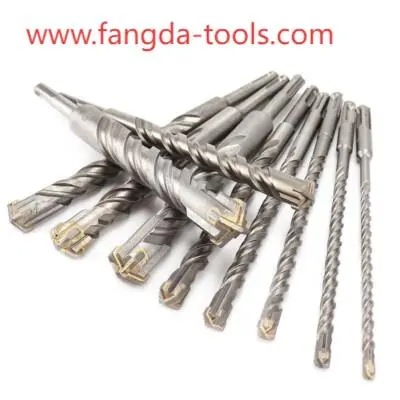
Related Blogs
How Can an SDS Drill Bit by fangda-tools Support Your Work?
3 minutes, 58 seconds
-23 Views 0 Comments 0 Likes 0 Reviews

When users search for tools that deliver steady action across varied building materials, many eventually notice how an SDS Drill Bit from fangda-tools provides a dependable foundation for daily drilling tasks. In busy construction or renovation settings, predictable tool behavior often plays a larger role than dramatic force, influencing accuracy, comfort, and workflow continuity.
Across masonry, concrete, brickwork, or layered structural surfaces, drilling conditions shift quickly. Variations in density, embedded aggregates, or moisture levels all affect how a bit moves through material. An SDS system helps stabilize this experience by securing a stronger connection between tool and bit, allowing impact force to transfer more smoothly. When this connection remains consistent, users gain clearer control of speed, depth, and alignment throughout each drilling sequence.
In many work environments, interruptions pose the biggest challenge. Unexpected vibration, wandering bit paths, or loose tool interfaces can interrupt progress and force adjustments mid-task. A stable connection supported by an SDS shank design reduces these disruptions and helps keep the user's movement steady. This steadiness becomes especially valuable in repetitive tasks such as mounting fixtures, preparing anchor points, or drilling uniform holes across large surfaces.
Comfort also plays a meaningful role in long work sessions. A well-constructed bit that interacts smoothly with a compatible drill can reduce unnecessary shock transfer. This supports better posture during overhead work, drilling at awkward angles, or operating on uneven ground. When physical strain decreases, users often find it easier to maintain consistent pressure and pacing, improving both efficiency and clarity throughout the day.
Another practical consideration is versatility. Construction work frequently requires switching between materials and task types, and an SDS system is valued for its compatibility with a wide range of bits used for drilling, chiseling, and shaping. This adaptability supports efficient task sequencing and helps workers avoid excessive tool changes. For teams managing multiple work zones, consistent tool behavior allows individuals to move from one task to another with minimal transition time.
Predictability is central to modern workflow planning. When tools behave reliably, users can align project steps more accurately, communicate requirements with teammates, and maintain momentum in multi-stage operations. A dependable bit gradually shapes a smoother rhythm across workdays, reducing the need for reactive decision-making. Over time, this contributes to more organized project flow and clearer coordination between different installation or construction phases.
As demand grows for tools that balance steady action with practical adaptability, evaluating drilling solutions becomes an essential part of planning future projects. A well-matched SDS bit can support long-term progress by offering consistent handling across changing materials and workloads.
If you are considering how to refine your drilling setup or prepare for upcoming tasks, you are invited to visit https://www.fangda-tools.com/product/ . Step into the site with one question in mind, and you may exit with new ideas ready to guide your next project direction.






Share this page with your family and friends.